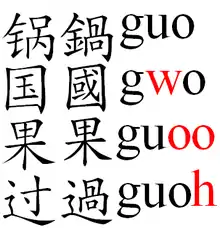- For a topical guide of this subject, see Outline of linguistics
Welcome to the Linguistics Portal!Linguistics is the scientific study of language. Linguistics is based on a theoretical as well as a descriptive study of language and is also interlinked with the applied fields of language studies and language learning, which entails the study of specific languages. Before the 20th century, linguistics evolved in conjunction with literary study and did not exclusively employ scientific methods. Traditional areas of linguistic analysis correspond to syntax (rules governing the structure of sentences), semantics (meaning), morphology (structure of words), phonetics (speech sounds and equivalent gestures in sign languages), phonology (the abstract sound system of a particular language), and pragmatics (how social context contributes to meaning). Subdisciplines such as biolinguistics (the study of the biological variables and evolution of language) and psycholinguistics (the study of psychological factors in human language) bridge many of these divisions. Linguistics encompasses many branches and subfields that span both theoretical and practical applications. Theoretical linguistics (including traditional descriptive linguistics) is concerned with understanding the universal and fundamental nature of language and developing a general theoretical framework for describing it. Applied linguistics seeks to utilise the scientific findings of the study of language for practical purposes, such as developing methods of improving language education and literacy. Linguistic features may be studied through a variety of perspectives: synchronically (by describing the shifts in a language at a certain specific point of time) or diachronically (through the historical development of language over several periods of time), in monolinguals or in multilinguals, amongst children or amongst adults, in terms of how it is being learned or how it was acquired, as abstract objects or as cognitive structures, through written texts or through oral elicitation, and finally through mechanical data collection or through practical fieldwork. (Full article...) Selected article -
Gwoyeu Romatzyh (GR) is a system for writing Chinese in the Latin alphabet. It was developed in the 1920s by a group of linguists led by Y.R. Chao, and is unique in its use of "tonal spelling" to indicate the four tones of Mandarin. Tones are a fundamental part of the Chinese language: using the wrong tone sounds as puzzling as if one said bud in English when one means bed or bad. Unlike other systems, which indicate tones with accents or numbers, GR modifies the spelling of the syllable: the four tones of guo, for example, are illustrated (the second tone gwo, meaning "nation", occurs in Gwoyeu). Some teachers believe that these distinctive spellings may help foreign students remember the tones. In 1928 China adopted GR as the nation's official romanization system. Although GR was mainly used in dictionaries, its proponents hoped one day to establish it as a writing system for a reformed Chinese script. But despite support from trained linguists in China and overseas, GR met with public indifference and even hostility due to its complexity. Eventually GR lost ground to Pinyin and other later romanization systems. However, its influence is still evident, as several of the principles introduced by its creators have been used in romanization systems that followed it. (more...) Did you know...From Wikipedia's "Did You Know" archives:  The number 605 in Khmer Numerals
Related PortalsThings you can do
CategoriesCategory puzzle Select [►] to view subcategories
Linguistics Linguistics lists Branches of linguistics Linguists Language classification Conditionals in linguistics Constructed languages Linguistic controversies Linguistics databases Discourse analysis Linguistic error Linguistics events Linguistic example sentences Formal languages Grammar History of linguistics Language contact Language documentation Language games Language preservation Languages Linguistic modality Onomastics Linguistics organizations Orthography Philosophy of linguistics Linguistics projects Pseudolinguistics Linguistic research Linguistics terminology Time in linguistics Linguistic units Linguistics works Linguistics writers Linguistics stubs WikiProjectsThe following WikiProjects work to improve topics concerned with linguistics:
Associated WikimediaThe following Wikimedia Foundation sister projects provide more on this subject:
Discover Wikipedia using portals
|






